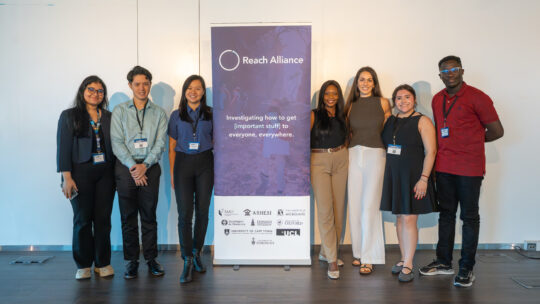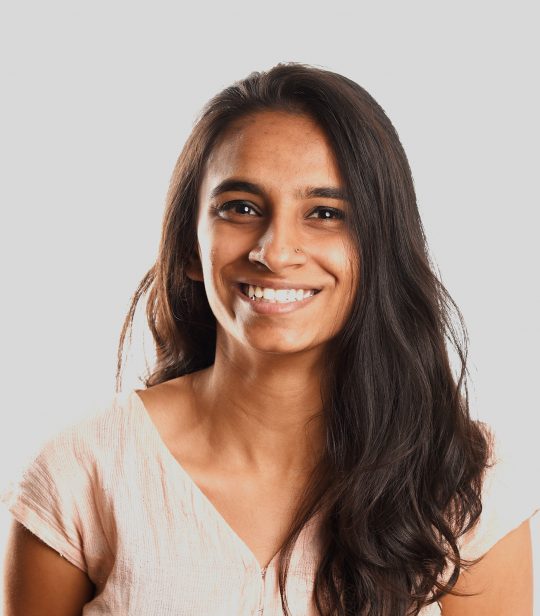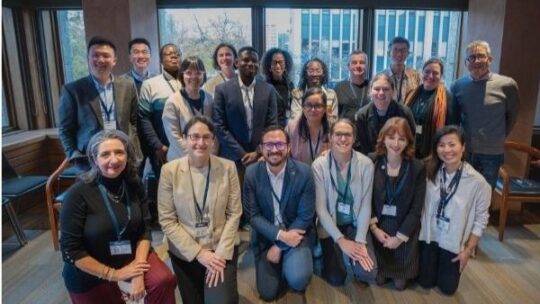Marla de la Cruz
Being the first Latina student (and hopefully not the last!) to attend last month’s Global Inclusive Growth Summit was not just a personal milestone but also a profound responsibility. As I engaged with entrepreneurs, innovators, policymakers, and emerging changemakers at the Washington DC event hosted by the Mastercard Center for Inclusive Growth, I realized the significance of bringing my region’s issues and perspectives to the forefront of the conversation. The summit, marking its 10th anniversary, provided a platform for advancing real solutions to pressing global challenges through collaboration and dialogue.
Throughout the various activities, networking opportunities, talks, and panels, I reflected on the urgent need to redefine and decolonize our approach to development. In taking action, it’s essential to involve the affected communities, particularly young people, in crafting solutions. Through participatory approaches, we can create sustainable, lasting, and targeted solutions.
Even though the speakers did not discuss it, I kept thinking about the concept of a “smart enough” solution. I first encountered the term in Ben Green’s book, The Smart Enough City: Putting Technology in Its Place to Reclaim Our Urban Future. Reading it during my first semester at Tec de Monterrey fundamentally shifted my perspective on public policy. Green’s exploration of “smart cities” that integrate technology into urban infrastructure and governance highlighted both the benefits and risks associated with technological innovation. While technology can offer efficiencies, it can also exacerbate inequality. Green advocates for a balanced or “smart enough” approach that prioritizes citizens’ well-being and agency over mere efficiency. This notion of being “smart enough” extends beyond urban development — it can inform how we approach all solutions to foster growth and address issues like inequality.

For me, being “smart enough” means delving deeply into issues, humanizing statistics, and recognizing that behind every number lies a story of real people. It means approaching communities with an open mind and respect, leveraging our power to effect change, and, crucially, co-creating public policies with affected populations rather than merely for them.
Effective problem solving requires intersectionality and coordination. Because problems do not adhere to boundaries or silos (they impact individuals across various intersecting identities and circumstances) our responses must be holistic and collaborative. Fragmentation only exacerbates challenges; actual progress demands a unified, intersectional approach.
In reimagining how we engage with development, we must confront the reality that traditional models have often perpetuated inequality and disenfranchisement. The path to inclusive growth requires us to challenge existing power dynamics, amplify marginalized voices, and centre the needs and experiences of those most affected by inequity if we mean to truly decolonize development.
At the summit, I witnessed first hand the power of collaboration and collective action. From grassroots initiatives (such as Karya, an Indian start-up that provides digital work opportunities to economically disadvantaged communities) to multinational partnerships (like the one between the Mastercard Center for Inclusive Growth and Devex to cover the event), attendees showcased diverse approaches to addressing shared challenges. It became evident that no entities or sectors possess all the answers—progress requires a multifaceted, inclusive approach that draws upon the strengths and expertise of various stakeholders.
As the first Latina student to participate in this global dialogue, I felt honoured and compelled to represent my community and advocate for meaningful change. I wanted to amplify voices that are often marginalized or overlooked. In doing so, I aim to inspire future generations of Latinx leaders to actively participate in shaping the global agenda and advancing inclusive growth.
My experience at the Global Inclusive Growth Summit reaffirmed the critical importance of inclusive, participatory approaches to development. By embracing intersectionality, collaboration, and a “smart enough” mindset, we can chart a course toward a more equitable and sustainable future for all. As we continue to navigate complex global challenges, let’s remember that our greatest strength lies in our ability to come together, listen to diverse perspectives, and forge innovative solutions that leave no one behind.




